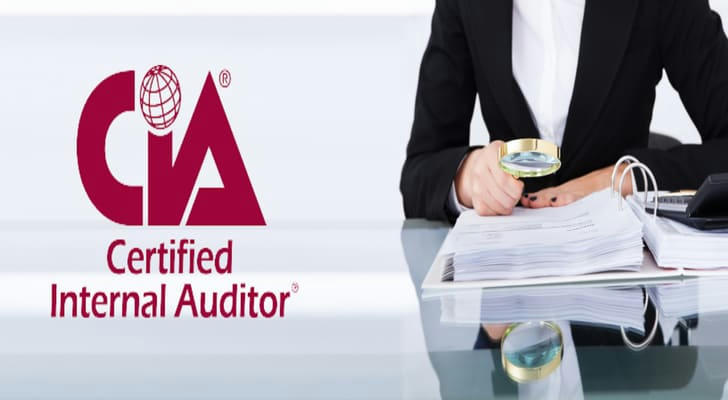The Right Way to Earn Your CIA Certification: A Complete Guide to Exam Prep and Career Planning

In an era where businesses face increasing scrutiny, regulatory oversight, and operational complexity, internal auditors have become key players in promoting transparency and risk control. Among global certifications in this field, the Certified Internal Auditor (CIA) designation remains the gold standard. Whether you're looking to advance your career or shift into a high-demand area of governance, becoming a CIA-certified professional can position you for long-term success.
Why the CIA Certification Matters
The CIA designation is the only globally recognized certification specifically for internal auditors. Offered by The Institute of Internal Auditors (IIA), it reflects a professional's ability to assess risks, strengthen controls, and support organizational governance.
According to the IIA’s 2023 global report, over 190,000 professionals worldwide hold the CIA designation. In regions such as North America, the Middle East, and Southeast Asia, demand for CIA-certified auditors continues to grow due to heightened regulatory requirements and expanded audit scopes that now include ESG, cybersecurity, and AI-related risks.
A recent Protiviti survey of executives across 15 industries revealed that 79% of audit leaders prioritize certification when hiring, with CIA ranking among the top three credentials. This data underscores the relevance of the CIA designation not only for career advancement but also for building credibility with employers and clients.
Overview of the CIA Exam Structure
To earn the CIA credential, candidates must pass a three-part exam that evaluates core competencies in internal auditing and business knowledge:
Part 1: Essentials of Internal Auditing
- Topics: Governance, risk management, control frameworks, and the foundations of the internal audit profession.
- Percentage of exam content: ~35% focuses on the International Professional Practices Framework (IPPF).
Part 2: Practice of Internal Auditing
- Topics: Planning engagements, audit procedures, evidence collection, and communicating results.
- Emphasizes real-world application, including fraud risks and internal control assessments.
Part 3: Business Knowledge for Internal Auditing
- Topics: Organizational structure, financial management, information technology, and data analysis.
- Considered the most diverse in content, requiring broad business acumen.
Each exam part is administered via computer-based testing at Pearson VUE centers or online (depending on region), and all questions are multiple choice. The IIA allows candidates to take the exams in any order, though most start with Part 1.

Effective Strategies for Exam Preparation
1. Start with a Self-Assessment
Candidates should evaluate their strengths and weaknesses based on prior education and work experience. For instance, professionals with accounting or audit backgrounds may find Part 1 and 2 manageable, but may need additional preparation for the broader topics in Part 3.
2. Use IIA-Approved Study Materials
Official resources like the IIA Learning System provide the most exam-aligned study modules. Other popular providers include Gleim, Hock International, and Wiley, offering video lectures, practice questions, and mock exams.
A 2022 candidate survey conducted by the IIA showed that candidates who used official or endorsed study materials had a pass rate 17% higher than those using generic resources.
3. Build a Study Timeline
Most candidates complete the CIA within 6 to 12 months. A sample study plan might include:
- Part 1: 6–8 weeks (fundamentals)
- Part 2: 6–8 weeks (engagement practices)
- Part 3: 10–12 weeks (broad business knowledge)
Aim for 8–10 hours of study per week, and schedule regular review sessions and practice tests. Adjust based on your comfort with each topic.
4. Join Peer Communities
Study groups—whether online (e.g., Reddit CIA forums, LinkedIn groups) or in person through IIA chapters—can help with motivation, accountability, and clarification of complex concepts. Many candidates also benefit from discussion-based learning, especially for application-oriented topics like fraud detection or control testing.
Career Opportunities After CIA Certification
Earning the CIA opens doors to a wide variety of roles in both private and public sectors:
- Internal Auditor: Core auditing functions, focusing on risk assessment and process evaluation.
- Senior Auditor: Leading engagements and managing junior team members.
- Internal Controls Manager: Designing control frameworks and advising departments on compliance.
- Compliance Officer or Risk Analyst: Working across departments to manage regulatory or enterprise risks.
- Chief Audit Executive (CAE): Head of internal audit, reporting directly to the board or audit committee.
According to a 2023 Robert Half report, companies across financial services, healthcare, and manufacturing are increasingly seeking candidates with certifications like the CIA to fill mid- and senior-level risk-related positions.
Real-World Example: The Impact of CIA Certification
At a Fortune 500 technology firm in Singapore, the internal audit department implemented a company-wide CIA certification initiative. Over the next 18 months:
- Internal audit error rates decreased by 28%
- The company’s control self-assessment program was expanded to 12 new departments
- Feedback from the audit committee improved significantly in annual performance reviews
This initiative not only enhanced audit quality but also led to quicker promotion tracks for certified employees.

Final Thoughts
The CIA certification is more than a credential—it’s a clear signal of professionalism, integrity, and dedication to the evolving standards of internal audit. Whether you aim to become a trusted advisor in corporate governance or take a leadership role in risk assurance, earning your CIA is a strategic move that aligns technical expertise with career growth.
By approaching the certification process with structured preparation, the right study resources, and a long-term career mindset, you’ll not only pass the exams—you’ll set yourself up to thrive in one of today’s most essential business disciplines.
